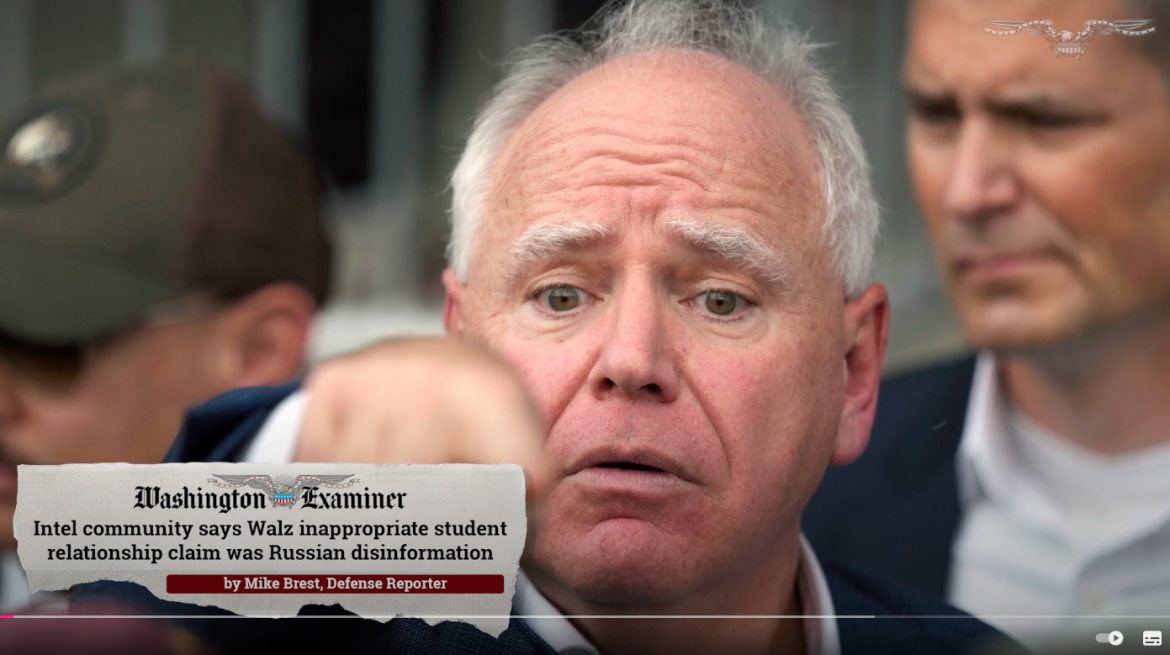U.S. election officials have uncovered a disinformation campaign originating from Russian groups aimed at disrupting the upcoming presidential election by spreading a fake video accusing Minnesota Governor and vice-presidential candidate Tim Walz of sexual assault. The video, which has gone viral on social media platforms, features a man who falsely claims to be a former student of Walz, alleging that the governor assaulted him. However, the individual in the video has since come forward, stating that the accusations are entirely fabricated.
Disinformation Campaign Unveiled
According to intelligence and cybersecurity officials, the video is part of a larger strategy by Russian actors to sow discord and undermine public trust in the electoral process. The timing of the video’s release—just days before the election—suggests an intent to sway voters by discrediting key political figures like Walz, who is running as the vice-presidential candidate alongside Kamala Harris.
The man featured in the video has publicly denied the allegations, clarifying that he was approached and coerced by unknown individuals to participate in the scheme. In a follow-up statement, he admitted that the entire story was a lie. “I was manipulated into saying things that are not true,” he said, adding that he never had any connection to Walz.
Social Media Spread and Impact
Despite the man’s retraction, the video continues to circulate widely on social media, with thousands of shares and comments from users discussing the false allegations. Platforms like Twitter, Facebook, and TikTok have been slow to take down the content, leading to its proliferation even after the video was debunked. Election security experts have warned that the damage may already be done, as disinformation spreads faster than corrections or clarifications.
Russian disinformation tactics have evolved significantly since the 2016 election, where similar methods were employed to create confusion and division among American voters. Officials say this latest effort represents a new wave of attempts to undermine the credibility of U.S. elections by targeting high-profile candidates with damaging, false claims.
Official Responses
Governor Walz has condemned the video, calling it a blatant example of foreign interference in the U.S. electoral process. “This is a deliberate and malicious attack on our democracy,” Walz stated during a recent campaign event. “I stand by my record of service to Minnesota, and I will not be intimidated by these false accusations or by those seeking to undermine the integrity of this election.”
The U.S. Department of Homeland Security (DHS) and the Federal Bureau of Investigation (FBI) are both investigating the origins of the video and working to identify those responsible for creating and distributing it. Early evidence points to Russian-linked disinformation groups that have been active in the spread of false narratives related to U.S. elections.
Ongoing Battle Against Disinformation
As Election Day approaches, federal agencies and social media platforms are under intense pressure to combat foreign interference and the spread of fake news. The FBI has been ramping up efforts to flag and remove disinformation campaigns, while social media companies are facing criticism for their delayed response in handling content moderation, especially when it comes to politically sensitive material.
Experts warn that these types of disinformation tactics are designed to create confusion and mistrust, making it harder for voters to discern fact from fiction. In recent weeks, similar false stories have emerged, targeting other candidates and public figures, further complicating an already polarized political landscape.
The video targeting Tim Walz is just one example of how disinformation is being weaponized to influence voters and undermine confidence in the election process. As the investigation continues, officials are urging the public to critically evaluate the information they encounter online and to rely on verified sources for accurate news.



